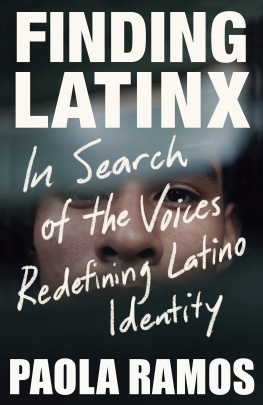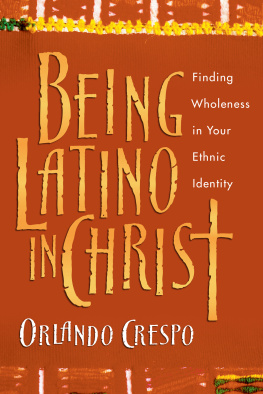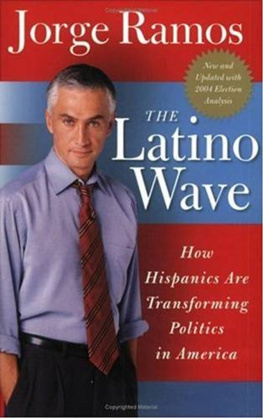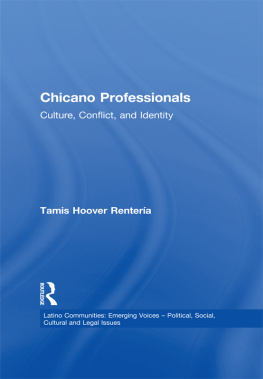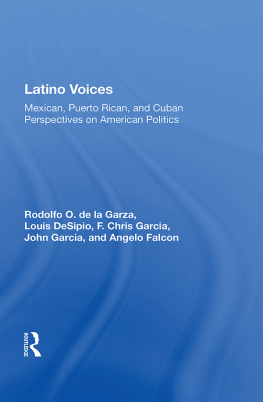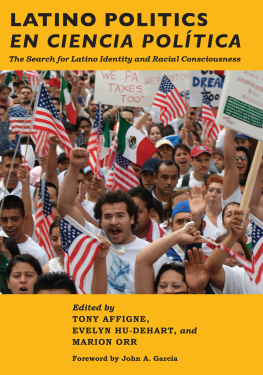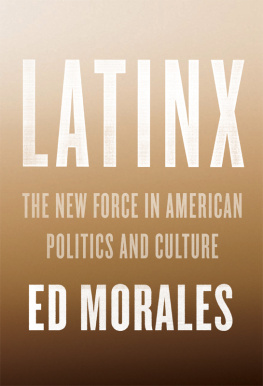Paola Ramos - Finding LatinX: In Search of the Voices Redefining Latino Identity
Here you can read online Paola Ramos - Finding LatinX: In Search of the Voices Redefining Latino Identity full text of the book (entire story) in english for free. Download pdf and epub, get meaning, cover and reviews about this ebook. year: 2020, publisher: Knopf Doubleday Publishing Group, genre: Religion. Description of the work, (preface) as well as reviews are available. Best literature library LitArk.com created for fans of good reading and offers a wide selection of genres:
Romance novel
Science fiction
Adventure
Detective
Science
History
Home and family
Prose
Art
Politics
Computer
Non-fiction
Religion
Business
Children
Humor
Choose a favorite category and find really read worthwhile books. Enjoy immersion in the world of imagination, feel the emotions of the characters or learn something new for yourself, make an fascinating discovery.
- Book:Finding LatinX: In Search of the Voices Redefining Latino Identity
- Author:
- Publisher:Knopf Doubleday Publishing Group
- Genre:
- Year:2020
- Rating:5 / 5
- Favourites:Add to favourites
- Your mark:
- 100
- 1
- 2
- 3
- 4
- 5
Finding LatinX: In Search of the Voices Redefining Latino Identity: summary, description and annotation
We offer to read an annotation, description, summary or preface (depends on what the author of the book "Finding LatinX: In Search of the Voices Redefining Latino Identity" wrote himself). If you haven't found the necessary information about the book — write in the comments, we will try to find it.
Paola Ramos: author's other books
Who wrote Finding LatinX: In Search of the Voices Redefining Latino Identity? Find out the surname, the name of the author of the book and a list of all author's works by series.
Finding LatinX: In Search of the Voices Redefining Latino Identity — read online for free the complete book (whole text) full work
Below is the text of the book, divided by pages. System saving the place of the last page read, allows you to conveniently read the book "Finding LatinX: In Search of the Voices Redefining Latino Identity" online for free, without having to search again every time where you left off. Put a bookmark, and you can go to the page where you finished reading at any time.
Font size:
Interval:
Bookmark:
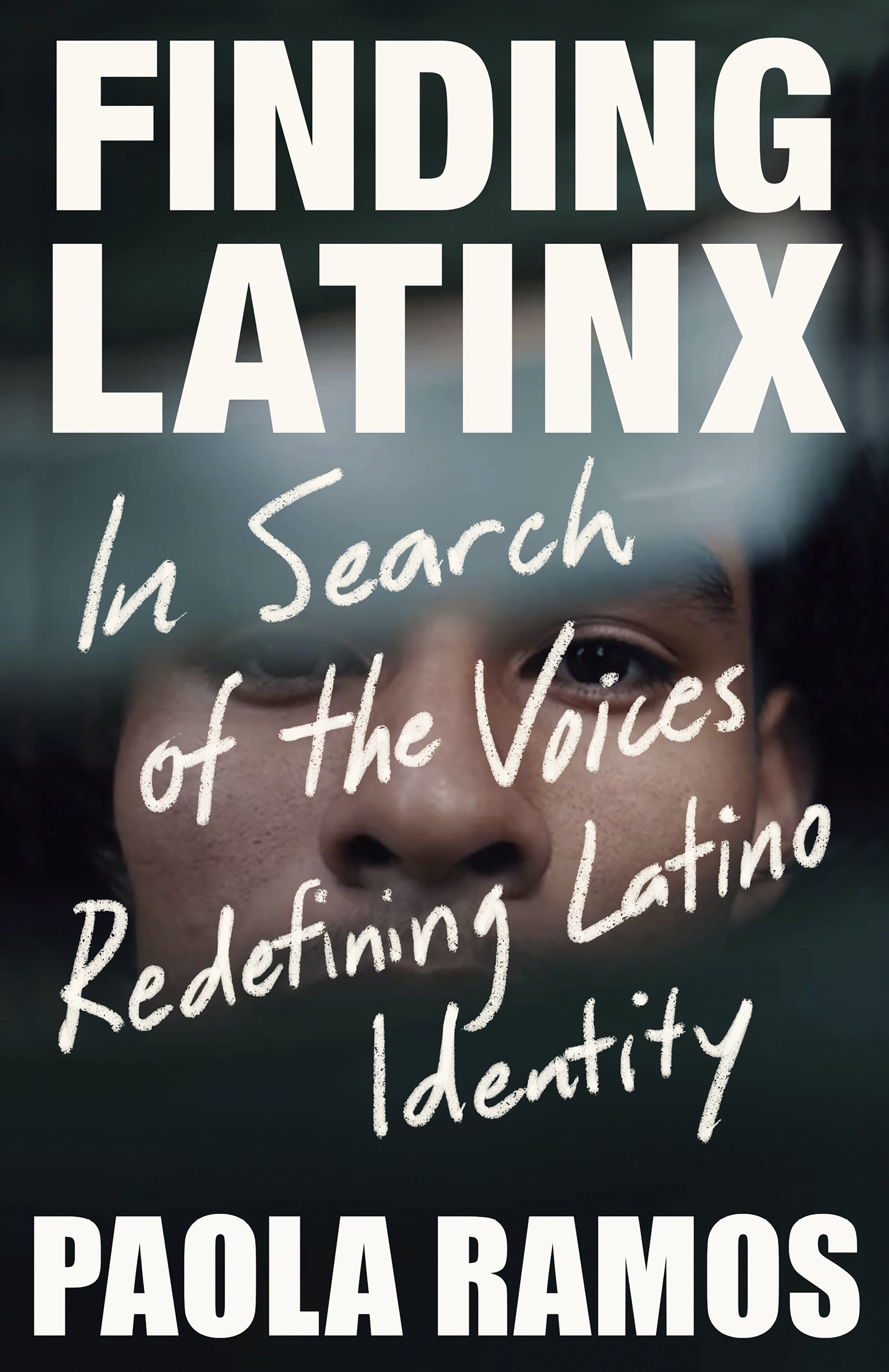

Paola Ramos is a host and correspondent for VICE and VICE News, as well as a contributor to Telemundo News and MSNBC. Ramos was the deputy director of Hispanic media for Hillary Clintons 2016 presidential campaign and a political appointee during the Barack Obama administration, and she also served in President Obamas 2012 reelection campaign. Shes a former fellow at Emerson Collective. Ramos received her MA in public policy from the Harvard Kennedy School and her BA from Barnard College, Columbia University. She lives in Brooklyn.
www.paolaramos.com
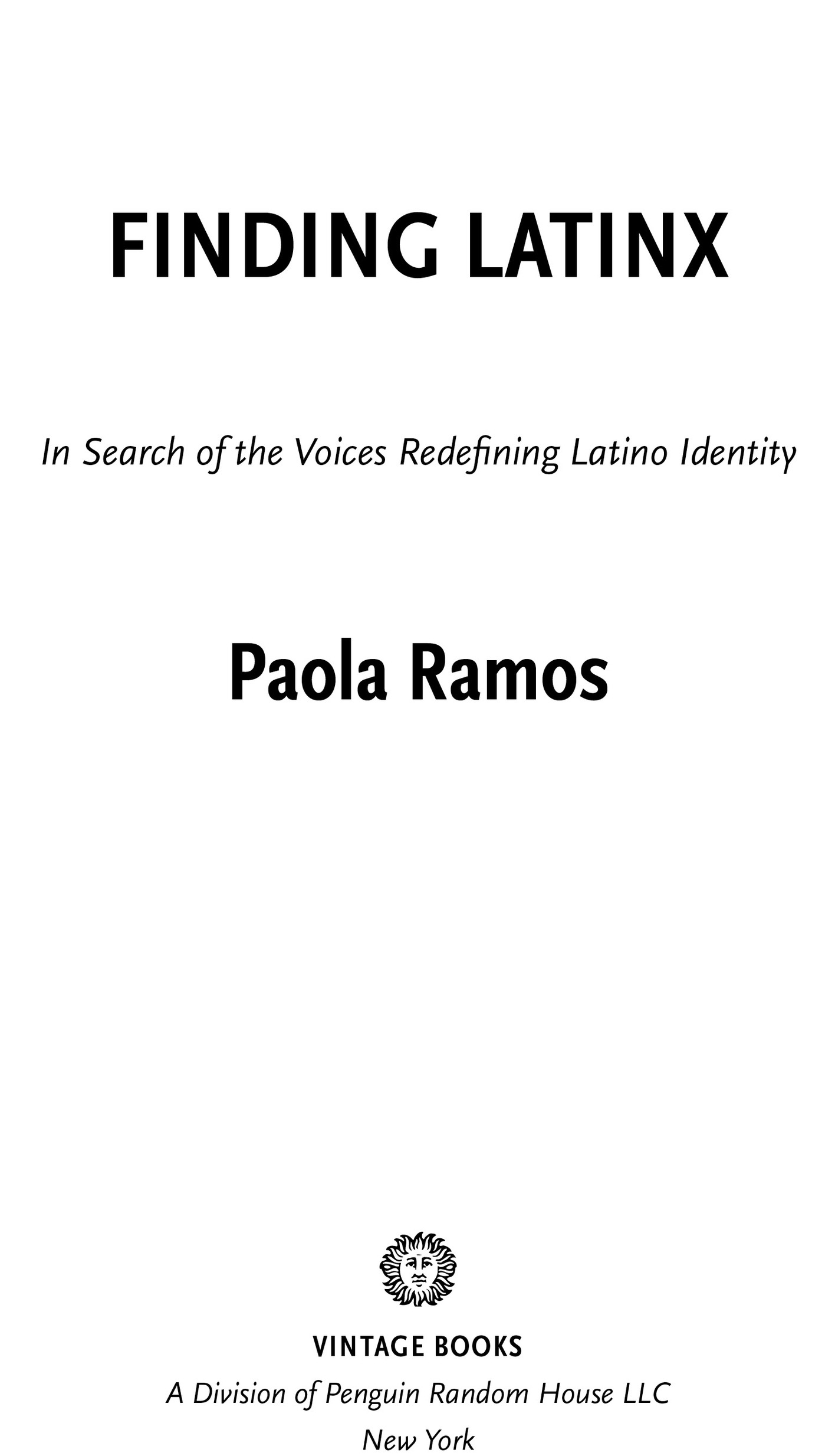
A VINTAGE BOOKS ORIGINAL, OCTOBER 2020
Copyright 2020 by Paola Ramos
All rights reserved. Published in the United States by Vintage Books, a division of Penguin Random House LLC, New York, and distributed in Canada by Penguin Random House Canada Limited, Toronto.
Vintage and colophon are registered trademarks of Penguin Random House LLC.
The Cataloging-in-Publication Data is on file at the Library of Congress.
Vintage Books Trade Paperback ISBN9781984899095
Ebook ISBN9781984899101
Map by Steve Walker
Cover design: Perry De La Vega
Cover photograph Adam Perez/@adamperez22
www.vintagebooks.com
ep_prh_5.6.0_c0_r0
To my mother, Gina, and my father, Jorge, whose love carries me everywhere I go
I never really came out.
Until recently.
Even after my loving parents sat me down a couple of times in high school, with open minds yet suspicions of my sexual orientation, I refused to use the word gay to describe the way my heart chose to love. Then, when I moved to Washington, D.C., to work in politics, I caught myself cringing when I entered Hispanic Group Meetings for networking and idea exchangenot because they werent welcoming but because I often felt that I didnt quite fit in. From afar, when I watched my fathers newscast on Univision, staring at a screen full of women who appeared to have just finished a Latin American beauty pageant, I questioned my own identity as a Latina. And even when I gave speeches throughout grad school, my Mexican Cuban heritage was overshadowed by an aggressive Spanish accent I unintentionally picked up during my childhood in Spain. Growing up between Madrids progressive environment and Miamis conservative Cuban community muddled my own political views at a young age. Where, exactly, did I fit in?
Yes, I am queer; I am Latina; I am Cuban, Mexican, and first-generation American. These are words I was not ashamed of saying out loudbut theres a difference between passive recognition and really owning ones identity. I openly had girlfriends, checked the Hispanic box on school applications, carried three passports, and admired the way my parents immigrant journey was central to our being. Yet the truth is that for years I had either blindly danced around these identities or felt I had to choose one over the others. Almost as though I had to wear different hats depending on the rooms I entered or the prejudices I encountered. Safe here, but not so much there. Of course, tiptoeing around these spaces was nothing but a reflection of the immense privilege my citizenship status and light skin granted me in life. Had I been undocumented, or simply a shade darker, Id carry a target on my back.
Looking back, I realize now that I never really came out as my whole selfas fully me. All of this changed the moment the word Latinx started rolling off my tongue.
Even though this mysterious term had been tossed around the Web since the early 2000s, I started using it shortly after Donald Trump won the 2016 presidential election. At the time, I didnt fully understand exactly where that word came from or what it meantall I knew was that it felt right. It felt more like me. It was a word I couldnt recognize but one that seemed to know exactly who I was. That addendum, the x, set free the parts of myself that had deviated from the norms and traditions of the Latino culture I grew up in in a way that, interestingly, made me closer to, not further from, my own community. A word that wasnt familiar but one that seemed to tout the uniqueness and diversity that had defined the sixty million Latinos living in the United States. One that felt it aimed to awaken not just a few of us, or half of us, or 90 percent of usbut every single one of us. Even those who had never been seen as Latino to begin with. And I wasnt alone in feeling this.
With Trumps unforeseen win came a desire for belonging. His victory mobilized millions of peoplewomen, youth, students, black communities, Latinos, immigrants, Dreamers, victims of sexual assaultto take to the streets and fill a void with their voices. People marched with furor, organized their communities, and spoke up in boardrooms and town halls, louder than they had before. Fear induced courage, and the undercurrent of racism that was now fully exposed pushed many of us to embrace inclusion. It was sometime amid this resurged movement that I noticed the word Latinx had started to become part of the daily vocabulary of the resistance. Latinx quickly became normalized in my circles, appearing everywhereprotest signs, conference calls, press releases, Twitter feeds, chants, and headlines. What does Latinx even mean? some colleagues and I would often ask one another. Where did it even come from? We didnt know, but we kept using it.
There are different answers to that question. But language inevitably evolves with time. A changing vocabulary reflects how a communitys demographics transform the struggles a community faces during different periods in history. Language tells stories, and stories change.
Harvard University fellow Dr. Nicole Guidotti-Hernndez points out that the use of the x is actually not a new phenomenon. As she writes in one of her articles: Earliest uses of the x come on the front end of Nahuatl-inspired writing of the word Chicano/Chicana as Xicano or Xicana. In the 1960s and 1970s, the x was inserted to indigenize Mexican Americans. It was used as a tool to counter Latin Americas colonial history and ensure that indigenous peoples were not erased. Dr. Guidotti-Hernndez also provides several historical examples of other ways in which the Latino community pushed back against linguistics in efforts to correct for misrepresentations, gender inequities, or exclusions of nationalities. Thats why, as she underscores, baby boomers fought so hard to institutionalize ethnic studies like Cuban American studies and Chicano studies programs on college campuses across America. The boomer generation prioritized nationalities over generalizations. That was the story then: in being able to say Mexican or Guatemalan over Latino. At some point, the word Latino was also controversial. Even though it is technically meant to include two genders, the word itself is still masculine. Thats why in the 1990s, people saw feminists rallying to demasculinize the gendered Spanish language, inserting symbols like @ or the neutralized
Font size:
Interval:
Bookmark:
Similar books «Finding LatinX: In Search of the Voices Redefining Latino Identity»
Look at similar books to Finding LatinX: In Search of the Voices Redefining Latino Identity. We have selected literature similar in name and meaning in the hope of providing readers with more options to find new, interesting, not yet read works.
Discussion, reviews of the book Finding LatinX: In Search of the Voices Redefining Latino Identity and just readers' own opinions. Leave your comments, write what you think about the work, its meaning or the main characters. Specify what exactly you liked and what you didn't like, and why you think so.

